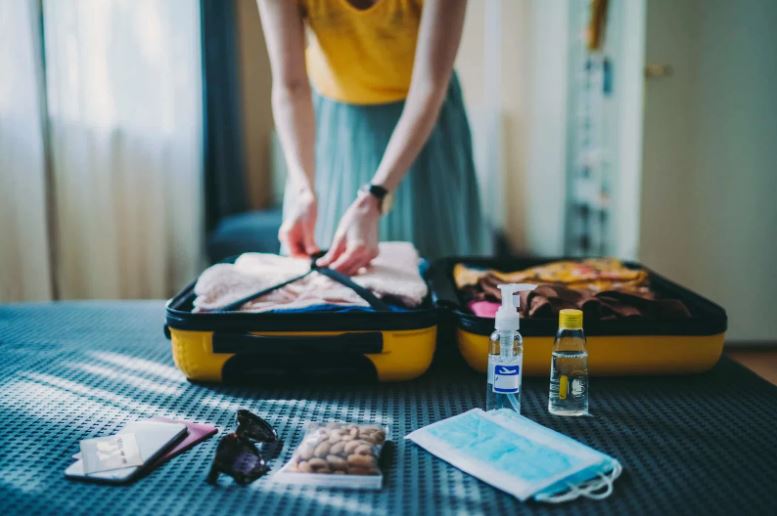
Traveling is an exciting experience, but ensuring your safety should always be a top priority. With evolving global situations, digital security concerns, and unpredictable weather conditions, it’s essential to plan ahead. Whether you’re traveling solo, with family, or on a business trip, these tips will help you stay safe while enjoying your journey.
1. Research Your Destination Thoroughly
Before you travel, gather important information about your destination:
- Check Travel Advisories – Visit official government websites for safety updates and alerts.
- Understand Local Laws & Customs – Avoid legal trouble by respecting local regulations.
- Know Emergency Contacts – Save local emergency numbers, embassy details, and nearby hospitals.
- Stay Updated on Weather Conditions – Plan accordingly to avoid natural disasters or extreme weather.
2. Secure Your Travel Documents
Losing your passport or important documents can be stressful. Here’s how to keep them safe:
- Make Digital & Physical Copies – Keep copies of your passport, visa, travel insurance, and itinerary.
- Use a Travel Wallet – Store important documents in a secure, easily accessible place.
- Register with Your Embassy – In case of an emergency, your embassy can provide assistance.
- Use RFID-Blocking Sleeves – Protect your credit cards and passport from digital theft.
3. Stay Safe with Money & Valuables
Money management while traveling is crucial to avoid theft or scams.
- Use a Travel-Friendly Credit Card – Opt for cards with fraud protection and no foreign transaction fees.
- Carry Minimal Cash – Withdraw only what you need and avoid displaying large amounts.
- Avoid ATMs in Secluded Areas – Use ATMs inside banks or well-lit public places.
- Store Valuables Securely – Keep your passport, extra cash, and electronics in a hotel safe.
4. Protect Your Digital Identity
Cybersecurity is often overlooked during travel. Follow these steps to safeguard your personal information:
- Use a VPN – Encrypt your internet connection, especially when using public Wi-Fi.
- Enable Two-Factor Authentication – Add an extra layer of security to your accounts.
- Avoid Public Computers & Wi-Fi for Transactions – Use mobile data or secure networks for online banking.
- Regularly Back Up Important Files – Save essential documents and photos on cloud storage.
5. Choose Safe Transportation Options
Getting around safely is key to a hassle-free trip.
- Use Official Taxi Services & Ride-Sharing Apps – Verify the driver’s identity before entering a vehicle.
- Avoid Hitchhiking – It may be unsafe in unfamiliar locations.
- Follow Local Traffic Rules – Whether renting a car or riding a scooter, know the road laws.
- Travel During Daylight – Nighttime travel can pose higher risks, especially in unfamiliar areas.
6. Stay in Secure Accommodations
Whether you’re in a luxury hotel or a budget hostel, safety matters.
- Check Online Reviews – Look for accommodations with high security ratings.
- Lock Your Room – Always double-check door locks and use security chains.
- Avoid Sharing Your Room Number – Keep your personal information private.
- Ask About Hotel Safety Measures – Learn about fire exits, emergency contacts, and security protocols.
7. Be Cautious with Social Interactions
Meeting new people is part of traveling, but staying alert is essential.
- Avoid Oversharing Personal Information – Be mindful of who you trust.
- Stay Aware in Crowded Places – Pickpockets often target tourists in busy areas.
- Trust Your Instincts – If a situation feels unsafe, remove yourself immediately.
- Join Group Tours for Added Security – Especially when exploring remote areas.
8. Prepare for Health & Medical Emergencies
Health precautions can prevent unnecessary travel disruptions.
- Get Travel Insurance – Ensure it covers medical emergencies, theft, and trip cancellations.
- Carry a First-Aid Kit – Include basic medications, bandages, and hand sanitizer.
- Get Vaccinated – Check required vaccinations before traveling.
- Know Local Healthcare Facilities – Research hospitals or clinics near your stay.
9. Stay Connected with Family & Friends
Regular check-ins ensure someone knows your whereabouts.
- Share Your Itinerary – Let family or friends know your travel plans.
- Use GPS Tracking Apps – Apps like Google Maps and Find My Friends can help in emergencies.
- Have an Emergency Contact List – Save important numbers in your phone and on paper.
- Buy a Local SIM Card – Stay connected without relying on public Wi-Fi.
10. Be Ready for Unexpected Situations
Even the best plans can go wrong. Here’s how to stay prepared:
- Have a Backup Plan – Identify alternative routes, hotels, or transportation.
- Know Basic Phrases in the Local Language – Essential for communication in emergencies.
- Avoid Political Demonstrations – Stay away from protests and large gatherings.
- Trust Local Authorities – Follow safety advice from hotel staff and travel experts.
Traveling safely in 2025 requires awareness, preparation, and smart decision-making. By staying informed, protecting your valuables, and being cautious in unfamiliar environments, you can enjoy a stress-free trip. Whether you’re backpacking, traveling solo, or visiting a new country, follow these safety tips to ensure a secure and memorable journey.
